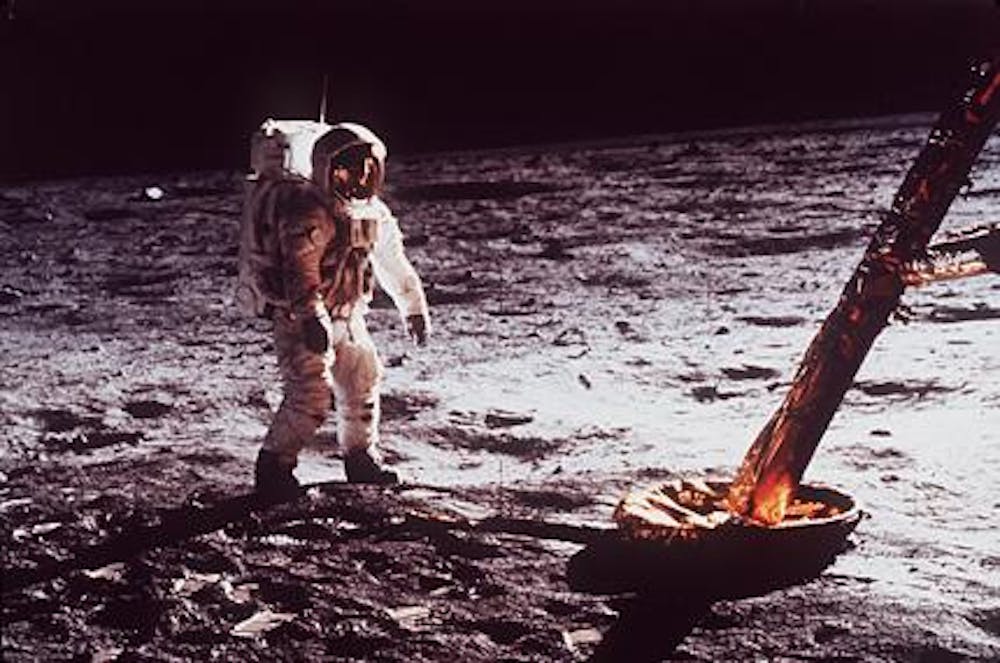July 19, 1969, was an ordinary Saturday. But the following day changed history.
It was 40 years ago Monday that Neil Armstrong first took his "giant leap for mankind," and still people remember the Apollo 11 moonwalk mission.
"To be able to look up in the night sky and know that, at that same moment, an ordinary man was looking back at Earth from the surface of the moon was a completely unreal experience," said Charles Telesco, a UF astronomy professor who watched coverage of the moonwalk from his Ohio apartment as a teenager.
Millions of people watched the moonwalk live as the grainy black-and-white images were beamed back to Earth and stored on giant reels of tape, according to a FoxNews.com report.
The original tapes have since been misplaced, but to celebrate the anniversary, NASA released restored footage of the mission Thursday that showed new details missing from first tapes, according to NASA's Web site.
Telesco said the restored footage consists of processed versions of transmitted images and that even though NASA worked hard to improve the degraded tapes, he is disappointed to know that the original videos may be lost forever.
"The restored video is important, but it is definitely not as historic as the original footage would have been," said Telesco, who worked for NASA for 12 years beginning in the early 1980s.
The video montage shows highlights of the iconic moonwalk, including improved images of Commander Armstrong and Buzz Aldrin taking their first footsteps on the moon's cratered surface and planting the American flag.
But Telesco said that the lost tapes don't dampen the achievement, especially knowing that scientists had very limited technology.
"It was like shooting an arrow up into the sky and hitting the smallest target possible," he said. "We did it fast, but we did it right."
Anthony Gonzalez, an associate professor in the UF astronomy department, was not alive when Armstrong first announced, "the Eagle has landed," but he said he hopes to see another astronaut return to the moon during his lifetime.
"Hopefully my lifetime will be a while," Gonzalez said. "But I definitely expect someone to be back on the moon within the next decade or two."
It has been 37 years since man last walked on the moon. Twelve astronauts from six Apollo missions have successfully completed the journey, but nobody has returned to the lunar surface since Eugene Cernan in 1972, according to an article on CNN.com.
Gonzalez credits this to the recent lack of motivation and competition from other countries, unlike in the '60s, when the U.S. was under pressure to put a man in space after the Soviet Union successfully sent Yuri Gagarin into orbit in 1961. Gonzalez said America learned a lot from the competition with Russia.
"The space race led to telecommunication satellites and had a huge impact on weather forecasts and GPS systems," he said. "Most importantly, it had a huge impact on the country psychologically."
Jessica Gordon, a UF business freshman, said she believes the advancement in technology has been one of the greatest benefits to come from the moonwalk exploration.
"It makes me wonder what is going to be accomplished during my lifetime," she said.
Even with the current lull in moon travel, Gonzalez said the first moonwalk mission will always be regarded as an iconic moment in history.
"It's incredible to think that the U.S. was able to undertake such a tremendous endeavor in such a short period of time," he said. "It just proves that America as a country can accomplish anything it sets its mind to."






